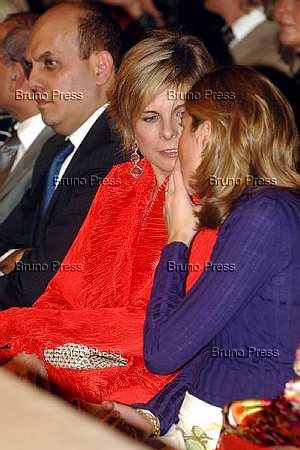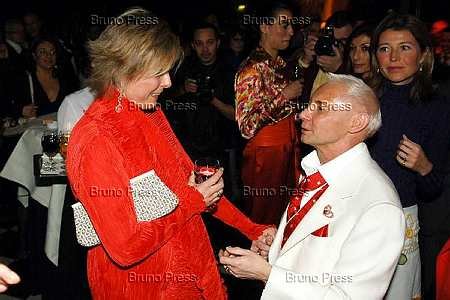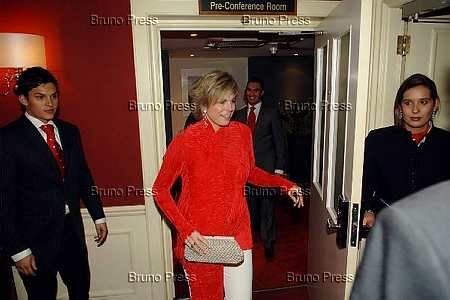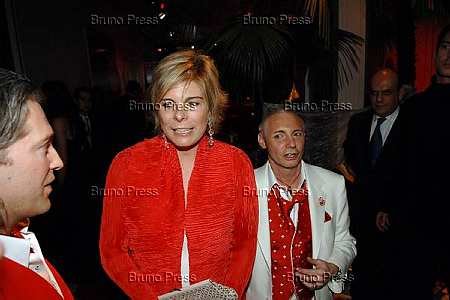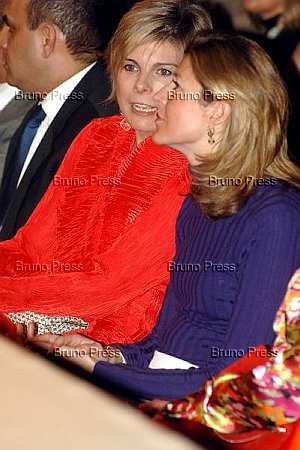Opening speech by Princess Laurentien , 22 February 2006
at the AIESEC International Presidents’ meeting 2006
Ladies and gentlemen,
‘Driven by diversity’.
Living, achieving and working with diversity are some of the key themes of this gathering and they in fact go back to the very beginnings of your organization 58 years ago. Plus ça change, plus ça reste le même!.. as the expression goes. Judging by the list of participants, you embody diversity and after this conference you’ll hopefully have an even better indication if you managed to live, achieve and work together effectively or not. That said, I will challenge you later on whether or not you are as diverse a group as you think you are.
To make diversity work, to allow it to question preconceived notions and to foster creativity and learning requires a genuine interest and understanding of the ‘other’; of what is different. We should celebrate diversity, but do so as part of a two-way process.
I am delighted to be here today to talk to you about an important issue that even in a diverse gathering like yours - of differing cultures, backgrounds, gender and strengths – may not be self evident for you.
I’ll have to disappoint you, if you expected this opening speech to cover the many aspects of the complex theme of diversity. What I want to do – as specifically asked by the organizers of this year’s President’s meeting - is to cover what I believe is one of the most important preconditions for any steady, sound and healthy society: literacy. In the context of diversity, I would like you to try and understand and indeed feel what it means to be illiterate for the individual and for society as a whole. Why we should all care about literacy. Why we cannot take it for granted anywhere in the world - north, south, east, west.
To give you a bit of context: this handicap is faced by an estimated 900 million people worldwide. That’s one out of every five adults who cannot, at least not sufficiently, read or write… A staggering and yes, a worrisome number. In this country alone, there are 1.5 million adults – about 10 percent - who cannot read and write sufficiently to function fully independently in society. You may be even more surprised to hear that the vast majority of them were born and bred in the Netherlands – although that said, it is an unacceptable situation regardless of who is affected by it. Other developed countries face a similar and in some cases even worse situations; in developing nations, percentages are often even higher. We often believe it to be a problem of past generations and the elderly, but it is not. Far from it. The situation among the children is no better, which arguably has an even worse impact for the future of our societies.
I don’t want to burden you at such a festive global gathering with the statistics and the underlying problems and possible solutions. I would however like to go through four fundamental values that are closely intertwined with literacy – intertwined with a society where everyone is able to use language as a key to happiness, to work, to information and to our fellow man. In many ways, they are also closely connected to diversity. Perhaps most of all, I hope that these values find a resonance with you – all talented individuals eager and no doubt able to play leadership roles in tomorrow’s societies. These values are: self-esteem, well-being, competence and democracy.
First, self-esteem. Not being able to read and write undermines self-esteem; and lack of self-esteem is a barrier to quality of life, self-fulfillment and in fact progress for the individual and society.
Most of us here today are fortunate enough to have been given a first chance in life – with education playing a central role. Now imagine that you are a woman or a man of let’s say 50 years old. You did go to school, but had problems keeping up with your peers. When you got married, you knew you had trouble reading and writing, but managed to hide it, even from your spouse. You had to limit your job search to jobs where reading and writing skills weren’t needed. You then had children. When they were young, you read books to them by making up the story to match the drawings. This all worked fine until the children got older and told you that you are not actually reading the story in the book... In the meantime, your company merged, your job description changed and now does include reading and writing… an unsustainable situation! Imagine how you’d feel. What it would do to your self-esteem…
This is not a fabricated story – the essence of the story is the reality for so many adults – and if we’re not careful for a growing number of young people who are not able to write sufficiently to function fully independently in society. Young people who are not stupid at all… but young people who are not getting, or taking, that first chance.
On the up-side, education helps contribute to a feeling of self-respect and confidence. So many people have told me about how the light went on at the end of the tunnel, once they had learnt how to read and write. About how they felt free, facing a new world with self-confidence. We need to break the vicious circle for those needing education most but not seeking it because they lack the self-confidence to do so. Education boosts self-esteem. And everyone deserves access to education.
















